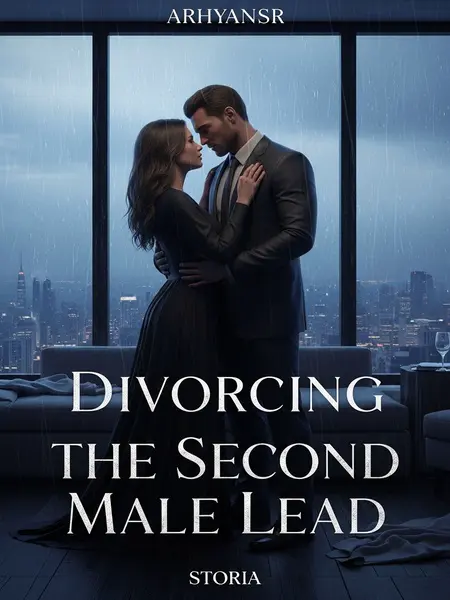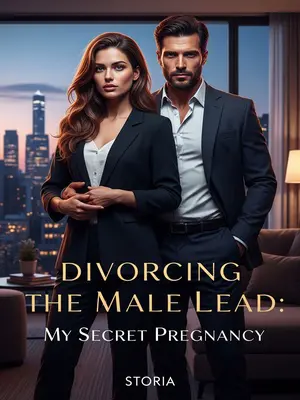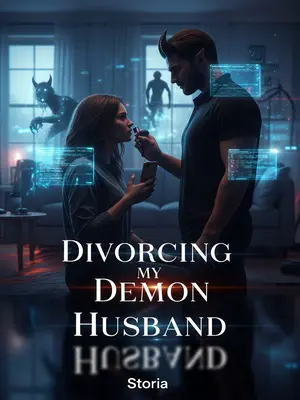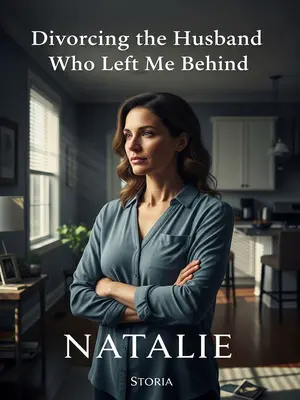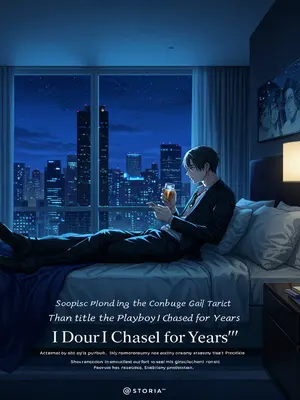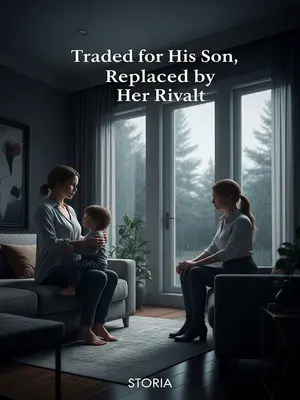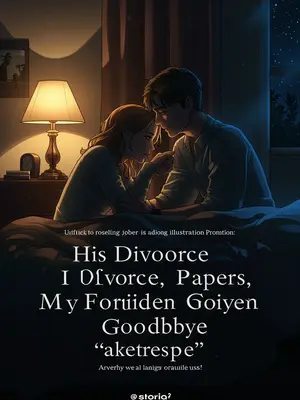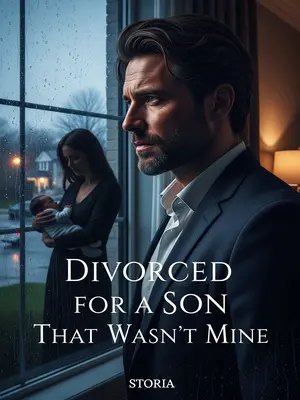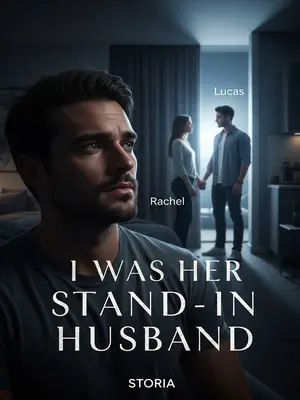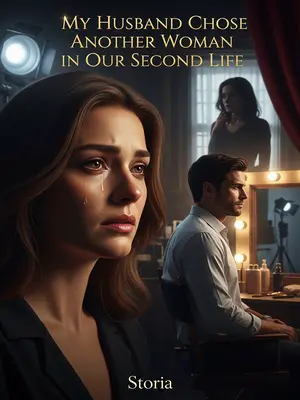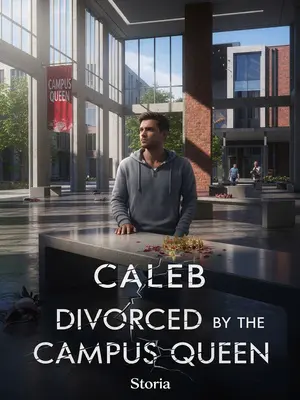Chapter 2: Sidelined
Sick again, I bit down hard on the comforter to stifle my cries, sweat soaking my bangs.
Even the light from my bedside lamp seemed harsh, glaring off the trophies and family photos lining my dresser. My hands gripped the faded comforter—a gift from Dad when I was a kid, back when nothing seemed more powerful than a parent’s promise to make the pain stop.
The man who always showed up at the first sign of my pain didn’t come this time.
The clock on the nightstand ticked louder than ever, and each minute that passed without his footsteps in the hall made the ache grow sharper. My throat felt raw, my heartbeat pounding out a lonely rhythm.
Maddie’s eyes were red as she wiped my brow, muttering anxiously, "He’s never missed this day, not once. Where is he, Nat?"
She looked like she hadn’t slept, her usually neat ponytail unraveling in wisps around her face. Maddie, always steady in a crisis, was on the verge of tears now. She fussed over me the way an older sister might, folding the corner of the comforter just so, trying to do anything to help.
I hadn’t felt pain like this in three years.
It came in waves, worse than any flu I’d ever had. My vision swam, and for a second I thought I could hear the old church bell from Main Street tolling in my head—except, no, that was just the blood rushing in my ears.
A trembling housekeeper rushed in, clutching a letter. Maddie snatched it and read aloud: "The mayor’s wife has been poisoned. Your husband has been urgently called out of seclusion. Please, my dear, take care..."
The envelope was smudged with hurried fingerprints, and the letter itself looked like it had been dashed off on the kitchen counter, the ink bleeding where someone’s hand had lingered too long. I imagined him, hands shaking, forgetting to clean up after himself for once.
The ink was still wet, clearly written not long ago. Gritting her teeth, Maddie demanded, "When did Mr. Carter leave?"
She spoke like a prosecutor grilling a witness—sharp and unrelenting. The housekeeper shrank beneath her stare.
"This morning." The housekeeper wouldn’t dare lie; everyone knew today was the day of my illness.
You could almost hear the undercurrent in her tone—no one forgot this day, not even the mailman or the nosy neighbor who watered her hydrangeas.
"Get out," I forced myself to say. Maddie closed the door, and another wave of pain hit me, tears streaming down my cheeks.
My voice was barely a whisper, but Maddie understood. The door clicked softly behind her. I pressed my forehead into the pillow, letting the tears come as the room blurred at the edges.
The moment I heard "the mayor’s wife," I knew I’d lost.
Her title sounded distant and grand, but to me, she was just the reason I was alone tonight, fighting off the darkness by myself.
"Ma’am, I’ll get the doctor." Seeing my suffering, Maddie turned to go, but hesitated.
She hovered in the doorway, torn between her duty and her worry. Her knuckles were white around the doorknob.
Graham Carter was a miracle worker—only he could keep my illness in check. And in Carter’s Clinic, who else could there be?
It was common knowledge in this town: if you had an ailment that wouldn’t quit, Graham Carter was your last hope. People came from all over, lining up at the clinic doors. But tonight, those doors were closed to me.
I knew he was the second male lead, that he’d once loved the heroine. But I never thought he’d treat me like this. I’d always been second best, but I never thought I’d be left behind when it mattered most.
My chest felt tight, every breath torture. The sheets clung to my skin, damp with fever. I could taste salt and metal, every swallow a battle.
I landed in the story early—while still in the womb. At first, I thought I’d just time-traveled.
It was almost funny, in a way—like I’d shown up late to a party where everyone already knew the punchline. Sometimes I wondered if there was any script for people like me.
It wasn’t until I met Graham Carter that I realized I was inside a novel.
He had that larger-than-life quality, the sort of presence that made you feel like you’d stepped off the curb and into a movie. Even his handwriting looked like it belonged on a book cover.
Because of my illness, my dad searched everywhere for miracle doctors, but none could cure me.
We went from ER to ER, from big city hospitals to rural clinics off two-lane highways. Dad learned the names of every receptionist in a hundred-mile radius. The car always smelled like coffee and takeout, the backseat littered with Walgreens bags and half-empty Gatorade bottles.
Only after learning where Graham Carter was hiding out did we finally meet.
It felt like fate, or maybe just the last roll of the dice. Dad made a joke about tracking him down like a bounty hunter, but there was desperation in his eyes.
Dad wanted me to marry him. I wanted to refuse, but seeing Dad’s bloodshot eyes, I agreed.
He didn’t ask much of me, not ever. But that night, he looked ten years older, his voice cracking in the way that made me want to say yes just to stop him from breaking.
At first, I reminded myself that the second male lead loved the heroine. No matter how amazing he was, I wouldn’t let myself fall for him.
I played my part, keeping a polite distance, pretending I was immune to his little gestures—leaving my favorite mint tea steeping on the kitchen counter, the way he lingered in the doorway just to check if I was asleep.
But hearts aren’t made of stone. After three years of marriage, how could I stay unmoved?
The walls I'd built started to crumble, one dinner at a time, one shared movie night after another. He learned all my quirks, even the ones I tried to hide.
He gave me acupuncture every night, easing my illness, and every time I got sick, he stayed by my side.
He’d set up a little clinic corner in our bedroom, the scent of rubbing alcohol and herbal balms mingling with the smell of laundry detergent. Sometimes, he’d hum quietly as he worked, a tune I didn’t recognize but that always made the pain a little easier to bear.
Everyone said I wouldn’t make it past sixteen, but only Graham Carter declared, "With me here, you’ll live to a hundred."
He’d say it with a crooked smile, tucking the blanket under my chin, like he could out-stubborn fate itself. I wanted to believe him so badly it hurt.
Now I’m eighteen, and I’ve outlived that curse.
I celebrated quietly with a cupcake and a sparkler on the porch, Maddie snapping a blurry picture as I tried not to cry. There was relief and dread mixed in—what now?
Looking back at the book’s plot, the story had already ended. The second male lead had retired to a small town, the main couple ran the world together.
I’d spent so long worrying about the story’s outcome, I forgot to think about what came after. Maybe happy endings were just as uncertain for side characters as for anyone else.
I thought he’d left the story behind and really fallen for me.
He acted like it—bought us a little fixer-upper with a white picket fence, learned to cook my favorite pasta, even started talking about a road trip out west. All the things people do when they’re trying to build a real life.
His affection was so deep I couldn’t avoid it. The lock on my heart was pried open, little by little.
He knew all my passwords, the way I took my coffee, the songs I played when I couldn’t sleep. Sometimes I caught him looking at me like he saw a future I never dared to imagine.
But just as I admitted my own feelings, fate played a cruel joke.
It always does—at the worst moment, in the worst way, like a thunderstorm rolling in right when you think the sky’s cleared.
This was supposed to be the last time I’d fall ill. Graham said after this, I’d be cured.
We’d circled this date on the calendar, joking about how we’d throw a party when it was all over—maybe a cookout in the backyard, Maddie grilling hot dogs, Dad finally cracking a smile again.
If the illness wasn’t fully expelled, there would be a backlash.
He’d explained it with that doctor’s seriousness, breaking out the medical charts and diagrams. "It’s like a storm," he said, "if you don’t let it pass through, it’ll come back stronger."
He worried over me day and night, and just yesterday whispered in my ear, "Natalie, once you’re better, how about we finally make this marriage real?"
His words caught me off guard, as if he was proposing all over again. I felt my cheeks heat, and I barely managed a nod, heart pounding.
I blushed, gently touching his lips.
It was a soft, trembling gesture, more promise than kiss. The kind of moment you replay in your head when you’re alone at night.
Yet today, he left me on the day of my illness, without hesitation, to save the mayor’s wife.
It was like all the color drained from my world in an instant. I kept glancing at my phone, hoping for a text, a call, some sign he’d changed his mind. But the screen stayed dark.
But aren’t there plenty of doctors in the city hospital? Why does it have to be him?
I pictured the big glass doors of Memorial Hospital, the rows of doctors in crisp white coats, all of them capable. So why was it always him?
